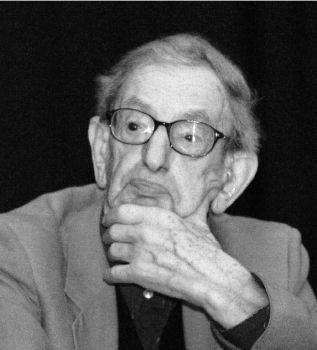Tim O’Neill makes a statement about history that I have never encountered in any work by any historian explaining to readers what he or she does. The only persons I have heard make the claim come from theological faculties when they try to place the evidence for Jesus on the same (or even higher) level that we have for other historical persons and events. O’Neill points his listeners to the title of his presentation: Did Jesus Exist? Yes (Probably) (link is to the 28 minute youtube video I am discussing). O’Neill explains:
It is … important to note the word “probably” in my answer to the question of whether this historical Jesus existed. Unlike some of the sciences, history can rarely arrive at definitive answers. . . . Historians are like detectives who examine evidence . . . and work out what probably happened. So when it comes to the pre-modern world, the sources, texts, passing references and documents and perhaps archaeology the historians analyse make it impossible for them to do more than than assess what is most likely. (from about 3 min 22 secs into the program)
Anyone who reads any work by historians discussing what they do will recognize that that remark is totally confused about what is the nature of history and the sorts of conclusions that can be drawn from the evidence — at least according to professional historians. At the very best the description might, with some slight modification, apply to a very narrow range of inquiries some historians undertake.
O’Neill continues:
People who like definite answers or proof are usually going to find ancient history pretty frustrating or perhaps disappointing. This means we can’t prove Jesus existed. But scholars can and do conclude that his existence makes most sense.
Given that we cannot give a definitive answer to the question there should be no surprise to learn that there’s no single piece of relevant evidence that definitely shows a historical Jesus existed. . . . The conclusion he most likely did exist depends on several vectors of evidence converging on that as the most likely conclusion.
I – nor you – have never read in a history book that “Rome probably or most likely — we can’t prove it, but it seems most likely from the convergence of several vectors of evidence — once had an empire stretching from Spain to Mesopotamia”, or “Julius Caesar probably existed and was probably assassinated”, or “A probable Spartacus probably led a probable slave rebellion and was probably defeated”.
Where there are questions with unclear answers, historians don’t fudge the odds and say “probably” if there is reason to doubt. They debate, or suspend judgement, or take clear sides because the evidence that does exist convinces them one way or the other. Did the ancient Greeks practice human sacrifice in historical times? Was the practice of temple prostitution practised in the ancient Near East? Did slaves build the pyramids? When questions like these were asked by historians, historians set out what they believed to be their answers — affirmative or negative — and cited the evidence supporting their beliefs. They didn’t fudge with a “probably”. Being intellectually honest types they were willing to concede that they were wrong and ready to change their minds when presented with new evidence or arguments. But that is still taking clear cut sides. It is not a position of “probability”.
Most history is narrative history. The facts are known and the problem for the historian is to decide how best to interpret them and judge the role they played in a narrative about, say, the lead up to a war, or progress toward social changes. That’s where “probably” enters the thinking. Would World War 1 have broken out even if the Archduke of Austria had not been assassinated? Probably. Was the Archduke assassinated? No probably about it.

But enough of my words. Hear/read it from some renowned historians themselves:
I strongly defend the view that what historians investigate is real. The point from which historians must start, however far from it they may end, is the fundamental and, for them, absolutely central distinction between establishable fact and fiction, between historical statements based on evidence and subject to evidence and those which are not.
There is a postmodernist question about truth but even here we are not dealing with probability but with whether objective truth can be known or not.
It has become fashionable in recent decades, not least among people who think of themselves as on the left, to deny that objective reality is accessible, since what we call ‘facts’ exist only as a function of prior concepts and problems formulated in terms of these. The past we study is only a construct of our minds. One such construct is in principle as valid as another, whether it can be backed by logic and evidence or not. So long as it forms part of an emotionally strong system of beliefs, there is, as it were, no way in principle of deciding that the biblical account of the creation of the earth is inferior to the one proposed by the natural sciences: they are just different. Any tendency to doubt this is ‘positivism’, and no term indicates a more comprehensive dismissal than this, unless it is empiricism.
In short, I believe that without the distinction between what is and what is not so, there can be no history. Rome defeated and destroyed Carthage in the Punic Wars, not the other way round. How we assemble and interpret our chosen sample of verifiable data (which may include not only what happened but what people thought about it) is another matter.
O’Neill compared historians to detectives. Hobsbawm extends that analogy to its logical conclusion: Continue reading “Getting History for Atheists Wrong (Again – and not just Probably) — #2”
